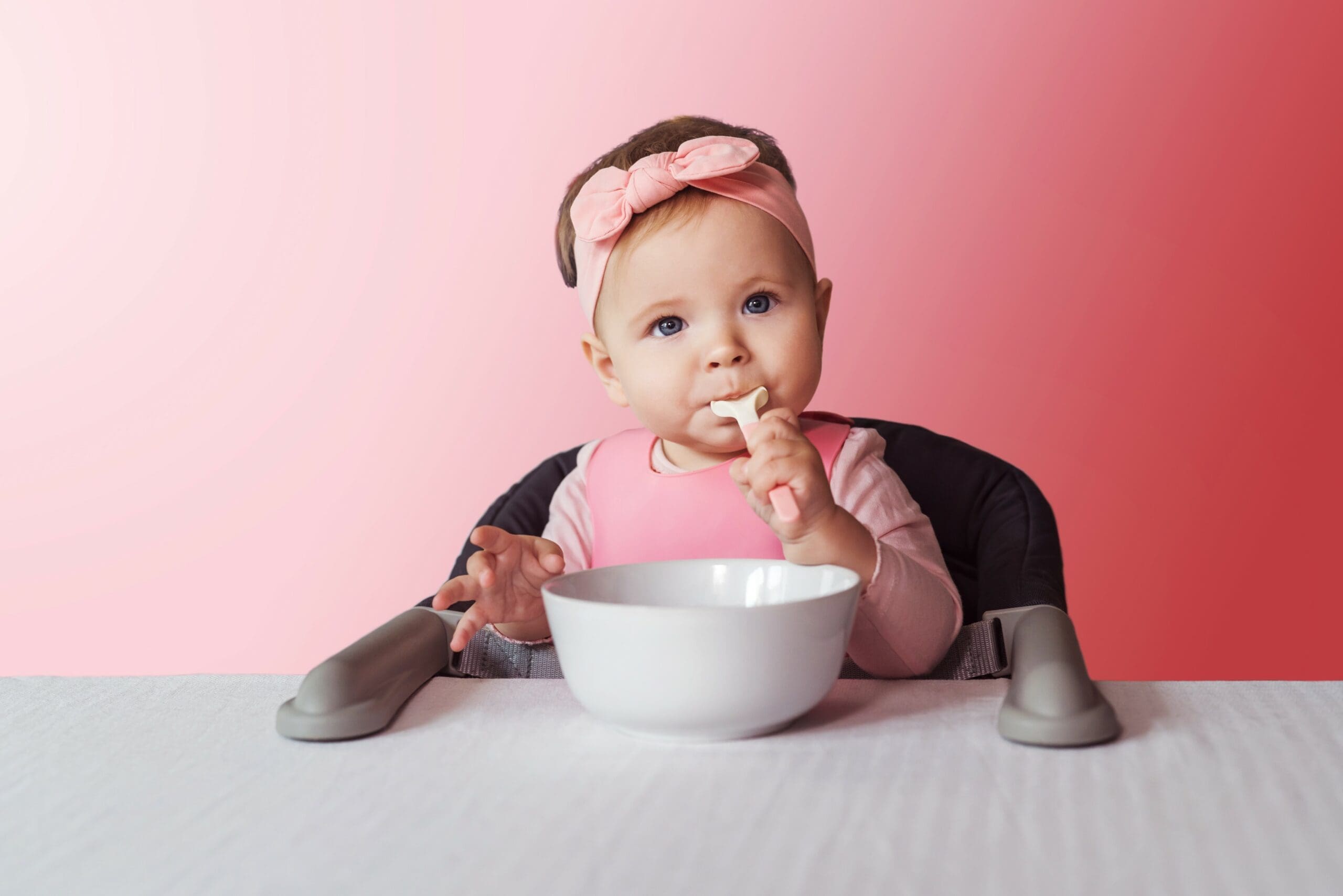In the UK and in Australia, the guidelines suggest that babies should be breastfed (where possible) for six months, to the exclusion of all solid food.
But many mothers find breastfeeding for that long difficult, and that their babies seem less satisfied with breastmilk over time. That means they introduce solids earlier, at four or five months. And more evidence is suggesting that the early introduction of solids for babies can have positive effects in a number of areas.
In this British study, more than a thousand three-month old babies who’d been exclusively breastfed to that point were split into two groups.
One group were to continue breastfeeding until the age of six months, while the other group were gradually introduced to foods considered “allergenic,” or more likely to induce allergy – cow’s milk, peanuts, eggs, sesame, white fish and wheat.
The researchers were hoping to find out whether introducing these allergenic foods early reduced a baby’s risk of developing allergies – and they found that the foods did in fact reduce the risk of allergy. But they also collected rich data on how well, and for how long, the babies slept. That let them see how the early introduction of solids affected a baby’s sleep.
Babies who were given solids before six months slept for longer every night, compared with those who were given just breastmilk.
What they found was that babies who were introduced to solids slept for about 17 minutes longer per night, compared with those babies who were still on breastmilk. That doesn’t seem a huge difference, but could mean a couple of extra hours of sleep for babies (and their parents) a week.
The parents of these children reported less serious sleeping problems. And it seemed that the more solid food the babies had, the better their results were.
Implications
Results like these may prompt a rethink of when it’s safe and desirable to introduce a baby to solid foods. The researchers didn’t see any harmful effects, and it benefited not only sleep but seemed to protect against allergies, too.





